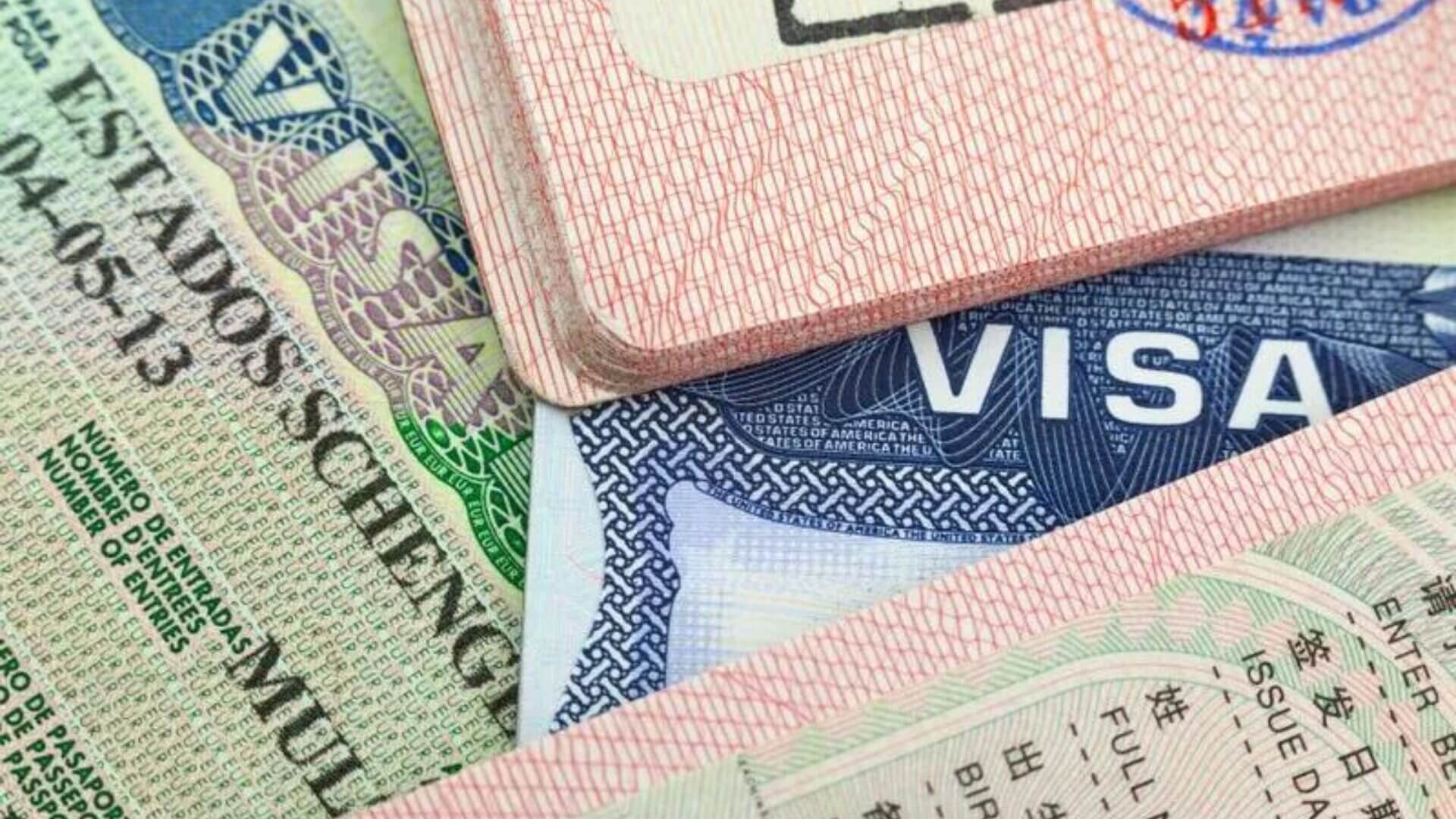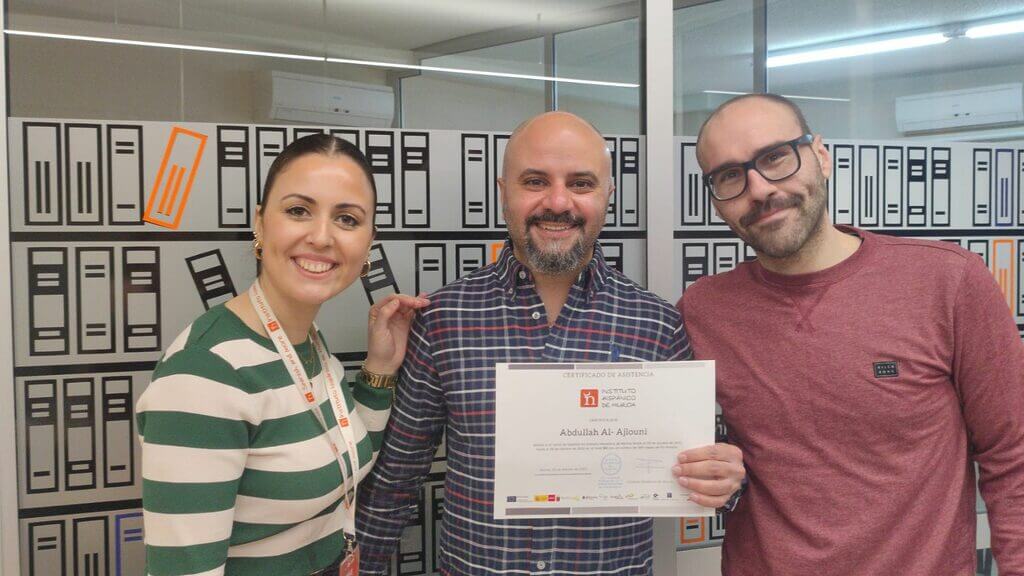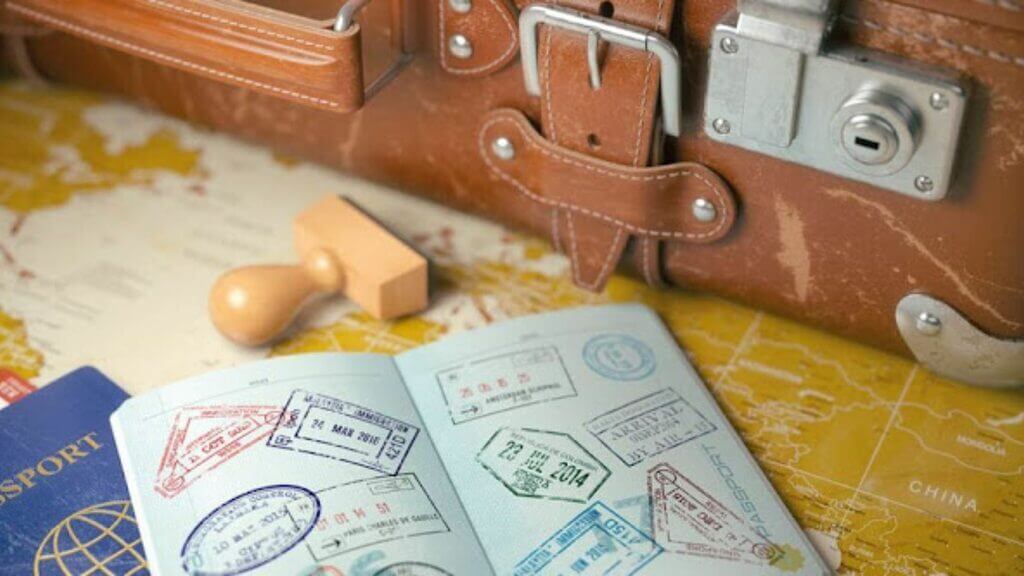Visas are essential tools in the complex network of global migration policies. We are going to explain the types of existing visas, with special detail to the study visa and the digital nomad visa.
The main function of a visa is to regulate the entry and stay of foreigners in a specific country. The diversity of visa types reflects the multiple reasons why people cross borders, from tourism and education to employment and family reunification.
Important Note: Instituto Hispánico de Murcia is not responsible for the information in this article, even if it has been collected from official sources.
Study visa
For those seeking to broaden their academic horizons abroad, the student visa is essential. This visa requires proof of admission to educational institutions, as well as demonstration of financial capability to cover tuition and living expenses.
Its objective is to facilitate access to international education and promote cultural exchange.
The visa for stays longer than 90 days is intended for those who plan to study, undergo training, internships, volunteer work, participate in au pair programs, or work as language assistants in a specific country.
This type of visa also covers the possibility for close family members of the student to accompany them during their stay. Below are some key aspects related to this visa.
This visa is necessary for longer stays for educational, training, or volunteering purposes, and a study visa is not required for stays of up to 90 days. However, a short-stay visa may be necessary depending on nationality.
They can obtain a visa to accompany the student:
- The spouse or registered partner.
- Children under the age of majority or legally incapacitated children.
Activities for which study visas can be obtained
- Full-time studies at an authorized educational institution leading to the attainment of a degree or certificate of study.
- Doctoral studies.
- Training activities.
- Student mobility programs in secondary and/or high school education in an officially recognized educational or scientific institution.
- Non-labor internships in public or private organizations or entities that do not fall within the internship visa categories.
- Volunteer services in programs with objectives of general interest.
- “Au pair” programs
- Conversation assistants.
To process the student visa, it is essential to have the appropriate documentation:
National visa application form
Each applicant must complete and sign the national visa application form. In the case of minors, one of the parents must sign the application. Signature by a duly authorized representative is also permitted.
Fotografía
A recent passport-sized photograph, in color, with a clear background, taken facing forward, and without dark glasses or clothing that obscures the face’s oval.
Valid and current passport
The original passport and a photocopy of the page or pages containing the passport’s biometric data. It must be submitted to the Consulate General and remain in their custody until the application is processed.
The passport must be valid for the entire planned stay, with at least two blank pages, and not issued more than 10 years ago.
Admission test
Original and copy of the document proving admission to a full-time study programme, research, training, volunteering, or internship. This document may vary depending on the nature of the activity but must confirm acceptance at an authorized institution.
Proof of financial means
Original and copy of documents demonstrating the availability of sufficient financial means to cover the expenses of stay and return. This includes 100% of the IPREM (Multiple Effects Public Income Indicator) and additional percentages for family members.
Scholarships, personal financial means, or support from parents are accepted, backed by commitment letters and financial documents.
Health insurance
Original and copy of the valid public or private health insurance certificate in Spain. It must cover all risks insured by the public health system and be valid for the entire period of stay.
Criminal record certificate
For stays exceeding 180 days, adult applicants must submit the original and a copy of the criminal record certificate issued by the countries of residence in the last 5 years. This certificate must include the apostille of The Hague and be issued within the last 90 days.
Medical certificate
Original and copy of a medical certificate issued in the last 90 days, certifying that the applicant does not suffer from any diseases that may seriously affect public health.
Proof of residence
Voter credential INE/IFE (National Electoral Institute) or residency card for foreigners demonstrating residency within the consular district.
Proof of identity and capacity of the representative
If the applicant is a minor or applies for the visa through a representative, a copy of the parent’s or representative’s identity document or passport must be submitted, along with the notarized power of attorney or representation document.
Notarial deed from parents or guardians authorizing the minor‘s travel to Spain and identifying the person who will be responsible for the minor in the country. These documents must be apostilled.
Payment of the corresponding fee
The corresponding fee must be paid according to current legislation.

Visit our website and book a long-term course for all the necessary information to obtain a visa!
Digital nomad visa
More and more nations are implementing visa programs aimed at digital nomads, largely due to the steady rise of individuals engaging in remote work, whether as freelancers or employees of companies with specific contracts.
A key factor in considering a destination as a digital nomad is affordability, which refers to finding places with a reasonable cost of living.
Along with Portugal, Spain stands out as having one of the lowest living costs in Western Europe, making it a popular choice for remote workers and retirees from other parts of the continent.
In response to these changes in work dynamics, the digital nomad visa in Spain has emerged. This programme is designed to provide a legal framework for those who enter the country with the intention of working, but without being temporary tourists or intending to reside long-term.
Visas designed for digital nomads are aimed at people who do their work online and wish to spend a period working and exploring the destination country. This eliminates the need to obtain a work visa, as these professionals do not have a local employer.
It is important to note that digital nomad visas generally do not allow for local income generation, which means that even if the work is remote, it cannot be for a company based in the host country.
In cases where it is allowed, only a small part of the income can come from a local company, as is the case in our country.
In many cases, digital nomads choose to stay in different countries on tourist visas or for the time allowed without the need to obtain a specific visa. However, this choice has limitations, as the period is usually 30 to 90 days, after which it is necessary to leave the country.
Digital nomad visas offer the main advantage of much longer stays, which can extend to 1 or 2 years, depending on the regulations.
It is important to note that obtaining a digital nomad visa involves additional requirements compared to entering as a tourist. For example, proof of income may be required in the case of self-employed workers or an employment contract if working for a company.
This process can be an obstacle for many digital nomads, as the income requirements can be high and often involve paying taxes.
Specific requirements vary from country to country, so it is crucial to research and comply with the regulations of your chosen destination nation.
Tourist visa
The tourist visa is the gateway to the world of leisure travel. This type of visa allows visitors to enjoy the wonders of a country for a limited period. Requirements typically include proof of accommodation, travel itinerary, and sufficient funds to cover expenses during the stay.
Violation of visa conditions could result in serious consequences, including deportation.
Work visa
The work visa is essential for those seeking job opportunities abroad. From temporary jobs to long-term contracts, this visa typically requires a valid job offer and, in some cases, approval from the government of the host country.
The work visa ensures that foreign workers comply with the labor and tax laws of the host country.
Business visa
The business visa facilitates the connection of entrepreneurs and professionals with business opportunities abroad. It may require invitations from local companies, details about the nature of the visit, and documents supporting the business intent.
This type of visa promotes economic development by fostering international collaboration.
Residence visa
The residence visa allows foreigners to establish themselves long-term in a country. With more stringent requirements than other types of visas, this process may include background checks, proof of income, medical insurance, and demonstrating potential contributions to the host country.
It can be temporary or permanent, depending on the applicant’s situation.
Transit visa
When a stopover is necessary on the way to the destination, the transit visa is essential. Although the stay is short, it ensures a smooth transition across borders and avoids potential problems during the connection. Requirements vary depending on the country and the length of the stopover.
Family visa or family reunion
The family visa is crucial for those seeking to join loved ones abroad. It allows parents, spouses, and children to join family members already established in the receiving country. Requirements may include proof of family relationship and the applicant’s ability to support themselves financially.
Humanitarian visa
In situations of emergency, conflict or persecution, the humanitarian visa provides refuge for those fleeing adverse conditions. It aims to provide humanitarian assistance and protection to applicants, ensuring a safe escape from critical situations.
Diplomatic or official visa
Reserved for government officials and diplomats, this visa facilitates official travel on behalf of their respective countries. It is essential for maintaining international relations, participating in bilateral negotiations, and promoting cooperation between nations.
Investor visa
The investor visa appeals to those seeking to contribute financially to the host country. By investing in local projects, holders of this visa contribute to economic development and may obtain benefits, such as residency or citizenship, depending on the country’s regulations.
This summary provides an overview of the conditions and permitted activities for those seeking to obtain a visa for different purposes. However, it is always recommended to check the specific requirements and regulations in force in the destination country before starting the application process.












